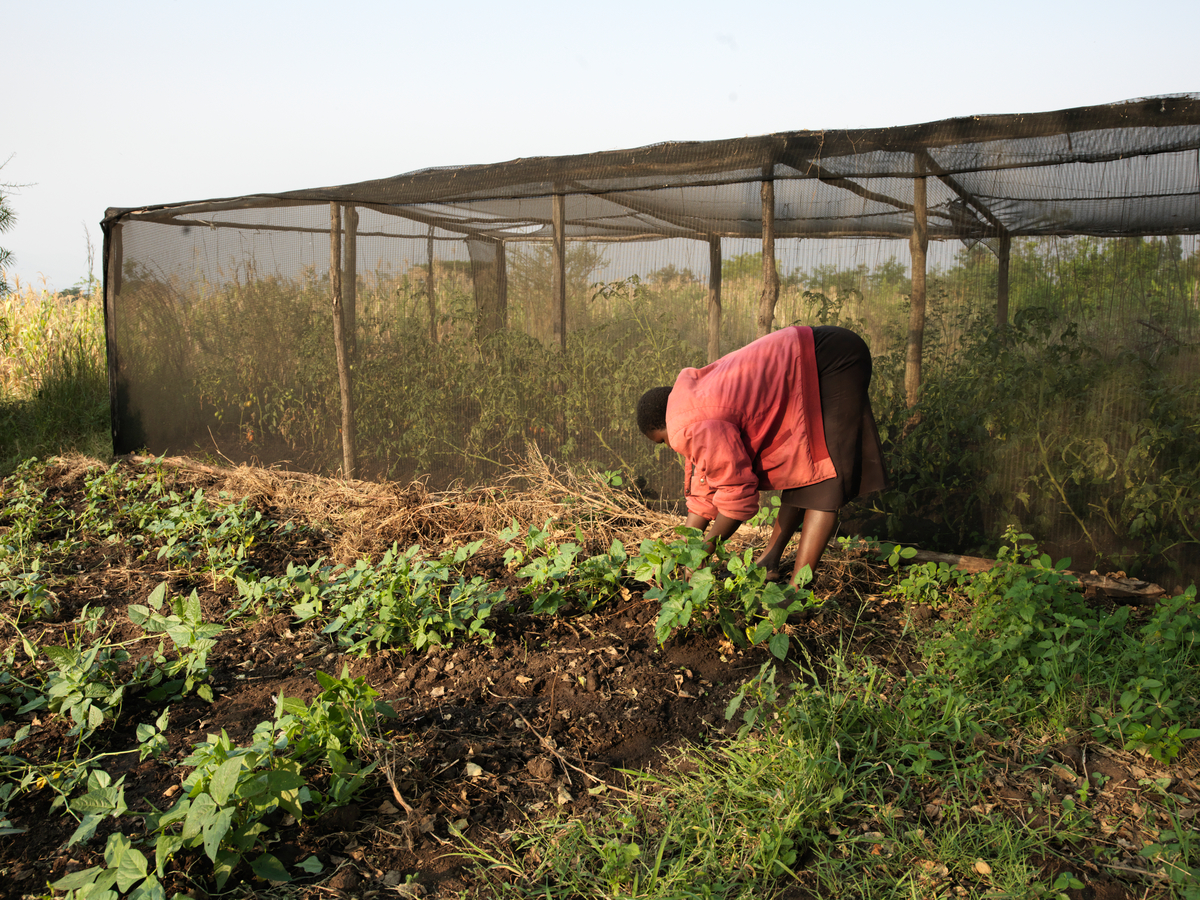
Merry Anyama harvesting cow pea in her ecological farm, next to the green house where she grows ecological tomatoes.
Lambwe Valley, Kenya.
Nairobi, 23rd August 2018: The past few months have seen increased cases of sub standard food imports into Kenya. From sugar that contains mercury to expired rice, to oil that does not meet the required standards. Experts have also warned that a lot of milk and chicken on sale is highly contaminated with disease-causing germs.
Reacting to these developments, Greenpeace Africa’s food for life Campaigner, Claire Nasike has said:
“It is shocking that even before the storm surrounding contaminated sugar has settled, Kenyans have to deal with news of food unfit for human consumption that has been allowed into the country. Kenya’s food system has become vulnerable to unscrupulous businessmen seeking to profit at the expense of consumers’ health. This leaves millions of consumers exposed to food contamination.
“Every Kenyan has a right to safe and healthy food of acceptable quality as stipulated by article 43 of Kenya’s constitution. There is an urgent need for the president to take a step further from food security and include food safety in his big four agenda given the ongoing crisis. His government needs to put stringent measures to tackle food safety.
“The Kenya Bureau of standards and Kenya Revenue authority have imposed new rules requiring goods headed to Kenya to be verified at the source – but the two bodies need to do more in terms of dealing with rogue port officials who work with cartels to clear substandard goods or fail to inspect containers bringing in food products.
“Unregulated imports are slowly killing farmers who depend on agriculture for their livelihoods. The government needs to support sustainable and safe food production methods such as ecological farming especially among smallholder farmers through increased resource allocation. Ecological farming does not contaminate the food or the environment with chemical inputs thus ensuring local stable supply of safe and healthy food.
“Greenpeace is urging the government to put in place robust policies and regulatory provisions and a clear standardisation system that traces the food supplies through the value chain. This will help in ensuring that standards are adhered to and food safety guaranteed.”
Notes to the Editor:
According to Food and Agriculture Organisation (FAO), the agriculture sector provides livelihoods to more than 80 percent of the Kenya’s population and contributes to improving nutrition through production of safe, diverse and nutritious foods.
Media Contact:
Hellen Dena, Communication Officer, + 254 717 104 144
